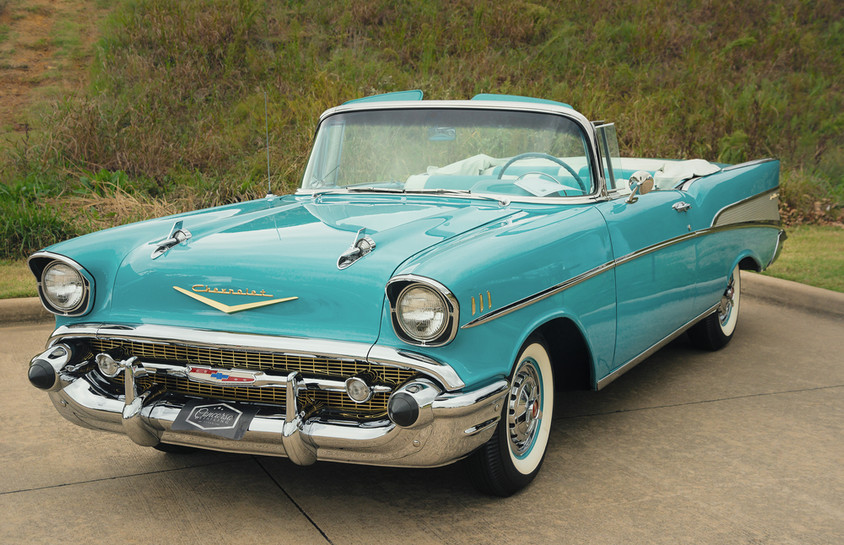There are certain processes that are meant to help facilitate the purchases and sales of valuable assets, including classic cars, and a great example here is known as consignment. What exactly is this, and is it something that you should be considering if you have one or more classic vehicles you're looking to sell?
At Andersen Restoration Parts, we provide a huge selection of classic car restoration parts for varying purposes, including owners looking to spruce up their vehicle ahead of a prospective sale. From center links and control arm bushing kits to polyurethane kits and tie rod steering rebuild kits, we have everything you might need. Here are some basics on what consignment is, some of its key benefits for sellers and buyers alike, and how the process of consignment will typically go for selling a classic car.
Defining Consignment
For those who are unfamiliar with the term, consignment simply refers to a situation in which an individual or entity is given temporary possession of something or some property belonging to someone else for the purpose of selling it. In essence, part of the agreement with consignment is that you hand over ownership rights temporarily until the item in question has been sold.
Consignment is often utilized in fields where significant expertise are needed to perform the sale properly. This is certainly true in the classic car market, where buyers and sellers alike want to get the highest return on their respective investments — or purchases.
Benefits of Consignment
For potential sellers, there are many advantages to choosing consignment when it comes time for you to sell your classic car, such as:
- You don’t have to worry about finding a reputable buyer, as all buyers are going through the seller
- No need to pay a sales commission or fees on the sale
- You don’t have to handle any paperwork associated with the sale
- The process of consignment is very secure and backed by reliable contracts that protect both parties
For potential buyers, consignment also offers a variety of benefits:
- You don’t have to worry about the condition of the vehicle or any hidden problems that may exist
- You can compare different vehicles and sellers in one place without having to make multiple visits
- The seller is usually very knowledgeable on the process and can provide more specific information on the car
- You can be assured that the seller is trustworthy due to their reputation in the classic car community
How Consignment Works for Classic Cars
The process of consignment for classic cars works similar to other sales, but with a few key differences. The two key parties will be the consignor (the seller of the vehicle) and the consignee (the buyer or purchaser, who is an expert in the field and will be selling the vehicle on their end).
Here are the typical steps that will be followed:
- Evaluating the vehicle: Together, the consignor and consignee will evaluate the vehicle and determine a fair market value, as well as any needed repairs or detailing that should be performed before listing.
- Setting the sale price: Once the vehicle has been evaluated, a sale price is set. The consignor holds the final authority here, though the consignee can provide suggestions.
- Finalizing the agreement: A contract is drawn up that outlines all terms and conditions of the sale, such as timeline expectations, payment arrangements and any additional fees or commissions.
- Quality presentation: In most consignment situations, the consignee is responsible for handling the presentation of the vehicle. This typically includes a full detailing job to ensure that it looks its best when presented to potential buyers.
- Advertising & marketing: The consignee will typically use their expertise to market the vehicle in their own network of buyers, while also running ads online or in print.
- Negotiating & closing the sale: The consignee will often handle any negotiations that arise from potential buyers, while also keeping the consignor updated throughout the process. They will also help ensure a secure transaction and provide buyer satisfaction once the sale is complete.
Unsold Cars During Consignment
Many consignment agreements will come with a specified period of time in which the vehicle must be sold. If the vehicle is not sold within this period (generally around 90 days), the two parties will typically agree on the next course of action - this might be extending the agreement for another 90 days, lowering the price or simply returning the vehicle to the consignor.
Choosing consignment is a great way to get a fair price and peace of mind when selling your classic car. With experienced professionals handling the sale, you can be sure that your investment will be taken care of and that you'll receive the best return possible. Plus, if there are any problems that arise during the process, the consignee will usually be able to take care of them.
If you're looking for parts to spruce up your classic car before selling it, Andersen Restoration Parts is here to help. We offer a wide selection of quality restoration parts that will have your vehicle looking its best in no time. Give us a call today to learn more about what we have to offer!

